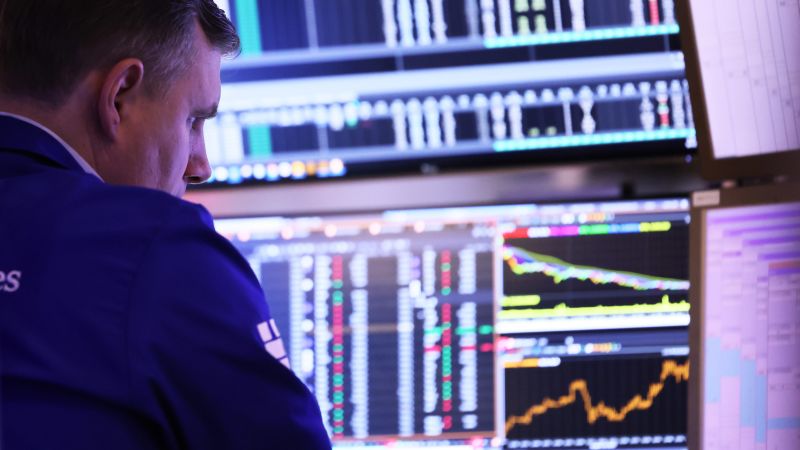A version of this story first appeared in CNN Business’ Before the Bell newsletter. Not a subscriber? You can sign up right here. You can listen to an audio version of the newsletter by clicking the same link.
The allure of owning stocks over less risky investments is at its lowest level in decades, according to one measure, despite the equity market’s race upward this year.
The benchmark S&P 500 index has gained 16% this year, pushed higher by Wall Street’s obsession with artificial intelligence that has propelled mega-cap technology stocks to dizzying heights.
At the same time, hot economic data has helped push Treasury yields higher in recent months. Bonds have become coveted additions to investors’ portfolios thanks to the Federal Reserve’s historic pace of interest rate hikes it began last March to tame runaway inflation.
A spike in yields can put pressure on stocks, since it increases the amount companies spend to cover the interest on their debt, in turn hurting their profit.
The recent surge in bond yields has also pushed down the anticipated advantage of owning equities over less risky investments — known as the equity risk premium — to a two-decade low.
Treasury bonds are generally seen as safer investments than stocks, since they’re issued by the US government, which has never defaulted on its debt. Treasuries also provide a steady source of income for investors.
One way to calculate that premium is by subtracting the estimated return on nearly risk-free bonds from that of stocks: in this case, the spread between the S&P 500 index earnings yield and 10-year Treasury yield.
“Investors are rarely getting adequate compensation in the equity market,” said Seema Shah, chief global strategist at Principal Asset Management.
Stocks cooled off somewhat in August, a historically tough month for markets since there’s a lack of economic data to spur a rally and people tend to go on vacations before summer’s end, leading to lower trading volumes and more volatility.
Yields have remained elevated, though off their highs from last month, as investors debated whether the Federal Reserve could keep interest rates higher for longer as surging oil prices and robust economic data signal that the central bank has more room to tighten monetary policy.
Shah says she recommends that investors weigh increasing their positions in high-quality bonds, considering that the economic outlook remains foggy despite Wall Street rolling back its bets on a downturn in recent months.
“The current economic backdrop is fraught with uncertainty, and investors may not be appropriately pricing in the strong likelihood of recession,” she said.
Taylor Swift’s fans know “the greatest films of all time were never made,” but that could be called into question come October 13, when her Eras Tour concert movie is set for release in North America.
The bigger question might be: Why did Swift decide to release her highly anticipated film in theaters over a streaming service?
Already, the film has reached notable milestones. It has broken records for single-day advance ticket sales revenue with $26 million worth of tickets sold on August 31, according to AMC Theaters, blowing past previous record-holder “Spider-Man: No Way Home.”
But Swift’s latest film is a pivot from recent years, when she released her concert films and documentaries on streaming services. Experts say that choosing movie theaters for the Eras Tour film’s debut over the small screen is a move fitting of both Swift’s business acumen and relationship with her fans.
Read more here.
America’s bars, hotels and restaurants say the era of post-pandemic splurging by US consumers has likely drawn to a close after they spent big this summer, reports my colleague Bryan Mena.
That includes “revenge travel” — a phenomenon in which consumers splash out on dining out and travel to make up for lost time during pandemic-era shutdowns.
The prediction came as part of the regular “Beige Book” economic snapshot from the Federal Reserve released Wednesday. Several of the Fed’s 12 regional districts reported peaking or even slowing tourism activity — a sign that US consumer spending, which accounts for about two-thirds of US economic output, could be shifting in the coming months.
“Consumer spending on tourism was stronger than expected, surging during what most contacts considered the last stage of pent-up demand for leisure travel from the pandemic era,” the report said.
Read more here.
Read the full article here










